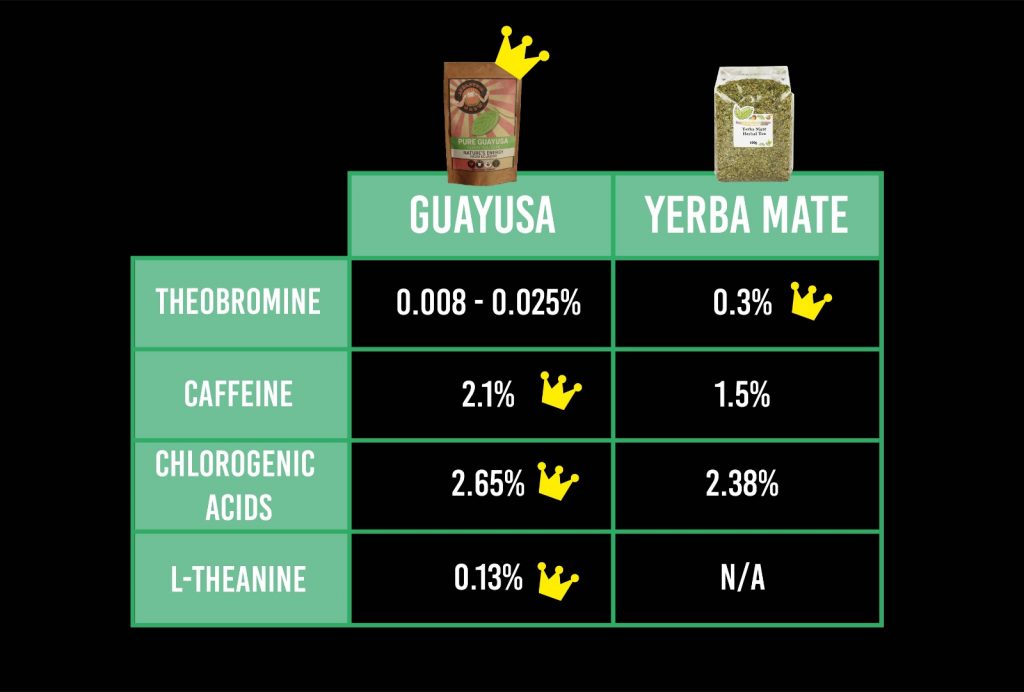Yes, peppermint tea can be good for PCOS. It may help reduce symptoms.
Many women with PCOS seek natural remedies to manage their condition. Polycystic Ovary Syndrome (PCOS) affects many women worldwide. It causes hormonal imbalance, irregular periods, and other health issues. Some believe that peppermint tea can help. This herbal tea is known for its soothing properties.
It may help ease some symptoms of PCOS. In this blog post, we will explore how peppermint tea could benefit those with PCOS. We will discuss its potential effects and why you might consider adding it to your daily routine. Keep reading to learn more about this natural remedy.
Related Article: Best Tea for PCOS
Introduction To Pcos
Polycystic Ovary Syndrome (PCOS) affects many women worldwide. Understanding PCOS is crucial for managing its symptoms and improving quality of life. This blog post explores the basics of PCOS and sheds light on common symptoms.
What Is Pcos?
PCOS stands for Polycystic Ovary Syndrome. It’s a hormonal disorder common among women of reproductive age. Women with PCOS may have infrequent or prolonged menstrual periods. They may also have excess male hormone levels.
The ovaries may develop numerous small collections of fluid. These are called follicles. They fail to regularly release eggs.
Common Symptoms
PCOS presents a variety of symptoms. These can vary from woman to woman.
One common symptom is irregular periods. Women may have fewer periods than usual. Or they may have periods that last many days.
Another symptom is excess androgen. High levels of male hormones can cause physical signs. These include excess facial and body hair. Severe acne and male-pattern baldness can also occur.
Polycystic ovaries are another symptom. The ovaries might be enlarged. They contain numerous small fluid-filled sacs. These sacs surround the eggs.
Weight gain is also common. Many women with PCOS struggle to maintain a healthy weight. This can lead to further complications.
Women with PCOS may also experience thinning hair. Hair loss can be distressing and affect self-esteem.
Skin issues are another symptom. Women might develop dark patches of skin. These patches often appear on the neck, groin, or under the breasts.
Overview Of Peppermint Tea
Peppermint tea has long been cherished for its refreshing taste and soothing properties. This herbal tea is made from the leaves of the peppermint plant. It offers a cooling sensation and a natural, minty flavor. Many people enjoy it as a caffeine-free beverage option. But it’s more than just a tasty drink. Peppermint tea may also have health benefits, especially for women with Polycystic Ovary Syndrome (PCOS).
Origins And Varieties
The peppermint plant (Mentha × piperita) is a hybrid between watermint and spearmint. It is native to Europe and the Middle East. Today, it grows all over the world.
Peppermint tea can be found in several forms:
- Loose leaf tea
- Tea bags
- Blended with other herbs
Each variety provides the same core benefits but may differ slightly in taste and aroma.
Nutritional Profile
Here’s a quick look at its nutritional profile:
| Nutrient | Amount per 8 oz (240 ml) |
|---|---|
| Calories | 0 |
| Carbohydrates | 0 g |
| Protein | 0 g |
| Fat | 0 g |
While it contains no calories, carbs, or fats, peppermint tea is rich in antioxidants. It also has essential oils such as menthol and menthone. These compounds are known for their digestive and anti-inflammatory properties.
In summary, peppermint tea is a versatile, nutritious beverage. Its origins and varieties offer a diverse experience. Its nutritional profile makes it an excellent choice for overall wellness.
Hormonal Balance
Polycystic Ovary Syndrome (PCOS) affects many women worldwide. Hormonal imbalance is a key feature of this condition. Managing hormones is crucial for reducing PCOS symptoms. Peppermint tea has gained attention for its potential benefits.
Impact On Androgens
Women with PCOS often have elevated androgen levels. High androgens can cause unwanted symptoms. These include acne, hair loss, and excessive hair growth. Studies suggest peppermint tea may help. It can reduce androgens in the body. This reduction may ease these symptoms.
Regulating Menstrual Cycles
Irregular menstrual cycles are common with PCOS. Hormonal imbalance disrupts the cycle. Peppermint tea might help regulate it. Some believe it can balance hormones. This balance can lead to more regular periods. Regular cycles are important for reproductive health.
Anti-inflammatory Properties
Peppermint tea is not only refreshing but also has anti-inflammatory properties. It can help manage symptoms of PCOS (Polycystic Ovary Syndrome). Many women with PCOS experience chronic inflammation. Peppermint tea can provide relief and improve overall health.
Reducing Chronic Inflammation
Chronic inflammation is common in women with PCOS. This inflammation can lead to various health issues. Regular consumption of peppermint tea may help reduce inflammation. This is because peppermint contains menthol, which has anti-inflammatory effects.
Studies suggest that menthol can lower the levels of inflammatory markers in the body. Drinking peppermint tea can, therefore, be a simple way to manage inflammation. Over time, this can lead to improved health and reduced PCOS symptoms.
Easing Pain And Discomfort
Pain and discomfort are other common issues in PCOS. Peppermint tea can help ease these symptoms. The anti-inflammatory properties of peppermint can reduce pain.
Menthol, found in peppermint, acts as a natural pain reliever. It can help soothe menstrual cramps and reduce bloating. Drinking peppermint tea regularly can make a significant difference in managing PCOS-related pain.
Here’s a quick comparison of the benefits:
| Benefit | Description |
|---|---|
| Reduces Inflammation | Menthol lowers inflammatory markers. |
| Eases Pain | Natural pain relief from menthol. |
| Soothes Discomfort | Relieves bloating and menstrual cramps. |
In summary, peppermint tea offers multiple benefits for women with PCOS. It can help reduce chronic inflammation and ease pain and discomfort.
Digestive Health
Peppermint tea offers many benefits. One of the most significant is improved digestive health. Those with PCOS often experience digestive issues. Peppermint tea can help ease these symptoms. It soothes the stomach and improves overall gut function. Let’s explore how peppermint tea supports digestive health.
Alleviating Bloating
Bloating is a common issue for those with PCOS. Peppermint tea helps to reduce bloating by relaxing the digestive system muscles. This relaxation helps gas to pass through more easily. Regular consumption of peppermint tea can reduce the frequency and severity of bloating.
Here is a table that outlines how peppermint tea helps alleviate bloating:
| Benefit | Description |
|---|---|
| Muscle Relaxation | Relaxes digestive muscles, easing gas passage. |
| Gas Reduction | Helps reduce the build-up of gas in the stomach. |
Improving Gut Function
Peppermint tea can also improve gut function. It has anti-inflammatory properties that soothe the digestive tract. This soothing effect can reduce symptoms like cramps and discomfort.
Here’s how peppermint tea helps in improving gut function:
- Anti-inflammatory properties – Reduces inflammation in the gut.
- Soothing effect – Eases cramps and discomfort.
- Digestive aid – Helps food pass more easily.
Drinking peppermint tea regularly can improve overall gut health. It provides relief from common digestive issues associated with PCOS.
Mental Well-being
Peppermint tea can be a soothing drink for many. For women with PCOS, it offers various benefits. One important aspect is mental well-being. This section explores how peppermint tea can help manage stress and improve sleep quality.
Stress Relief
Stress can worsen PCOS symptoms. Peppermint tea has a calming effect. It helps relax the mind and body. The aroma of peppermint is refreshing and soothing. Sipping on this tea can reduce stress levels. This can lead to a calmer mind and a happier mood.
Improving Sleep Quality
Good sleep is crucial for managing PCOS. Peppermint tea can improve sleep quality. It has a natural muscle relaxant effect. Drinking it before bed can promote better sleep. A well-rested body can handle PCOS symptoms better. Enjoying peppermint tea at night can be a simple bedtime ritual.
Potential Side Effects
Peppermint tea is often praised for its health benefits, but it is important to be aware of its potential side effects. While it can be beneficial for managing PCOS symptoms, it is crucial to understand how it may affect your body. Here, we explore the potential side effects of peppermint tea, focusing on possible allergies and interactions with medications.
Possible Allergies
Some individuals may experience allergic reactions to peppermint tea. Symptoms can include:
- Rash
- Itching
- Swelling
- Breathing difficulties
If you notice any of these symptoms after drinking peppermint tea, discontinue use immediately. Consult your healthcare provider to determine if peppermint is the cause of your reaction.
Interactions With Medications
Peppermint tea may interact with certain medications. It is essential to be cautious if you are taking:
- Antacids
- Blood pressure medications
- Diabetes medications
- Certain antidepressants
Drinking peppermint tea while on these medications can affect how your body absorbs or processes the medicine. This interaction could reduce the effectiveness of your medication or increase side effects. Always consult your doctor before adding peppermint tea to your routine if you are on any medication.
Incorporating Peppermint Tea
Incorporating peppermint tea into your daily routine can be a simple way to manage PCOS symptoms. This aromatic tea offers numerous benefits, including soothing digestive issues and reducing stress. Plus, it’s easy to make and enjoyable to drink.
Daily Consumption Tips
Start with one cup of peppermint tea each morning. Brew it fresh to enjoy its full flavor and benefits. Use a teaspoon of dried peppermint leaves or a tea bag. Pour boiling water over the leaves and let it steep for five minutes. Drink it plain or add a bit of honey for sweetness.
If you prefer, enjoy a second cup in the evening. This can help relax your body and mind before bed. Be consistent with your routine to see the best results. Track any changes in your symptoms to understand how the tea affects you. Consult your healthcare provider for personalized advice.
Pairing With Other Treatments
Peppermint tea works well with other PCOS treatments. Combine it with a balanced diet rich in whole foods. Include plenty of fruits, vegetables, and lean proteins. Regular exercise also supports overall health and hormone balance.
Consider integrating mindfulness practices like yoga or meditation. These can reduce stress, which often exacerbates PCOS symptoms. Herbal supplements like spearmint tea or cinnamon can also complement your regimen. Always discuss new treatments with your healthcare provider to ensure they are safe and effective for you.

Credit: pcosweightloss.org
Frequently Asked Questions: Is Peppermint Tea Good for PCOS?
What Are The Benefits Of Peppermint Tea For Pcos?
Peppermint tea may help manage PCOS symptoms. It can reduce hirsutism, improve digestion, and lower stress. Drinking peppermint tea can also help regulate hormones.
How Does Peppermint Tea Affect Hormones In Pcos?
Peppermint tea can help balance hormones. It has anti-androgen properties which reduce testosterone levels. This may alleviate some PCOS symptoms.
Can Peppermint Tea Reduce Pcos-related Stress?
Yes, peppermint tea is known for its calming effects. It can reduce stress and anxiety, which are common in PCOS.
How Often Should I Drink Peppermint Tea For Pcos?
Drinking peppermint tea 1-2 times a day may help. Consult your doctor for personalized advice.
Conclusion
Peppermint tea can be a helpful part of managing PCOS symptoms. Its natural properties may offer relief and support overall health. Always consult with a doctor before making any changes to your diet or routine. Small steps, like adding peppermint tea, can make a difference.
Stay informed and make choices that benefit your well-being.






